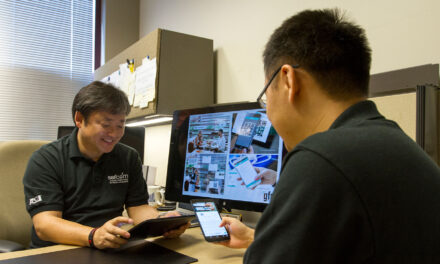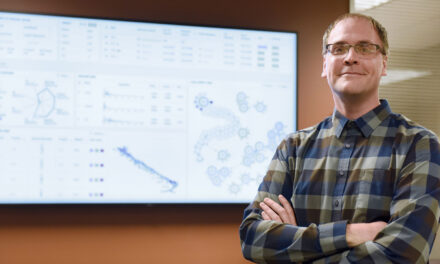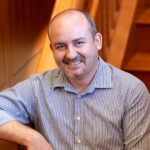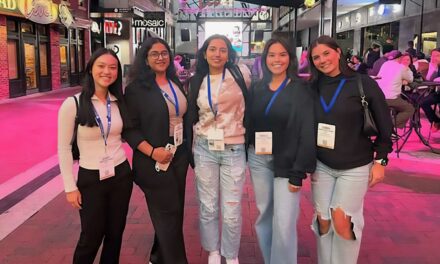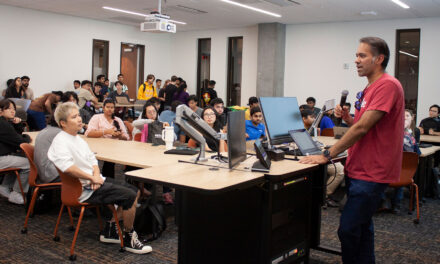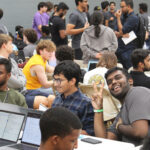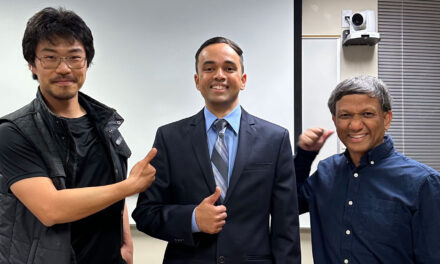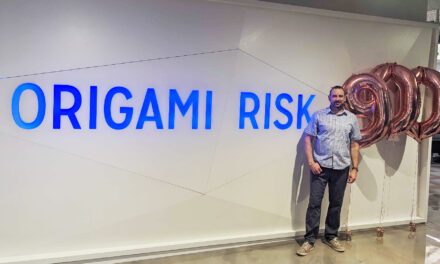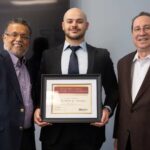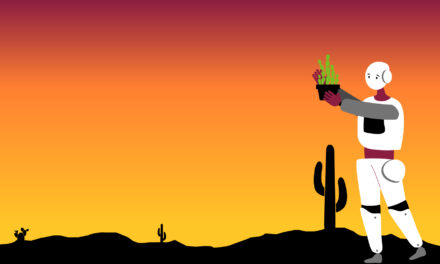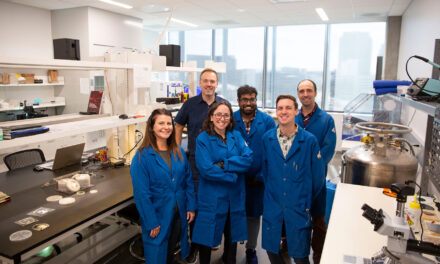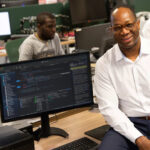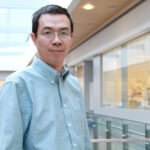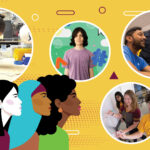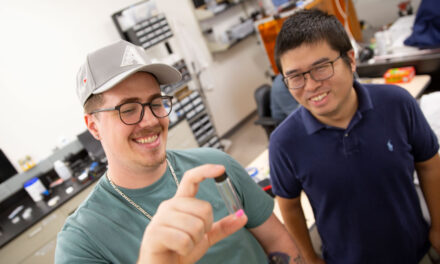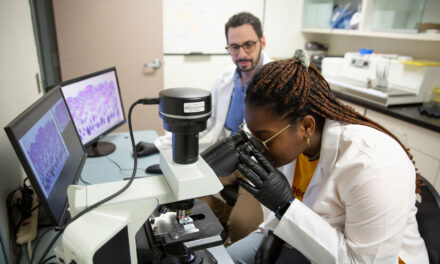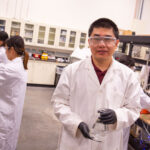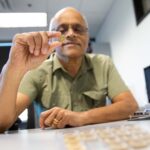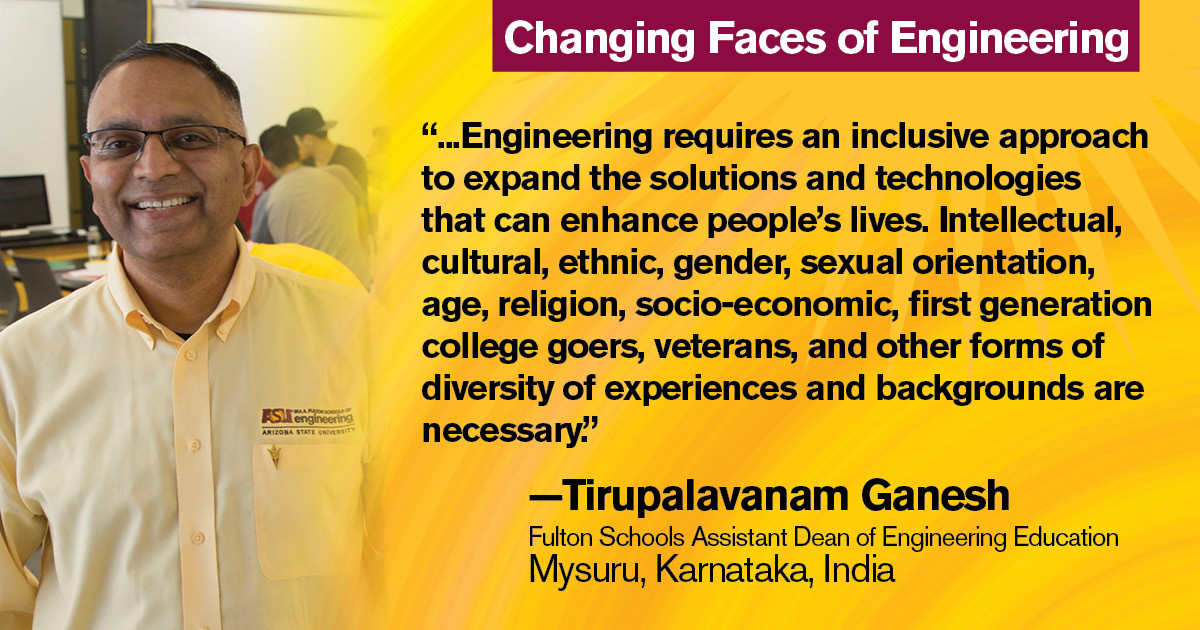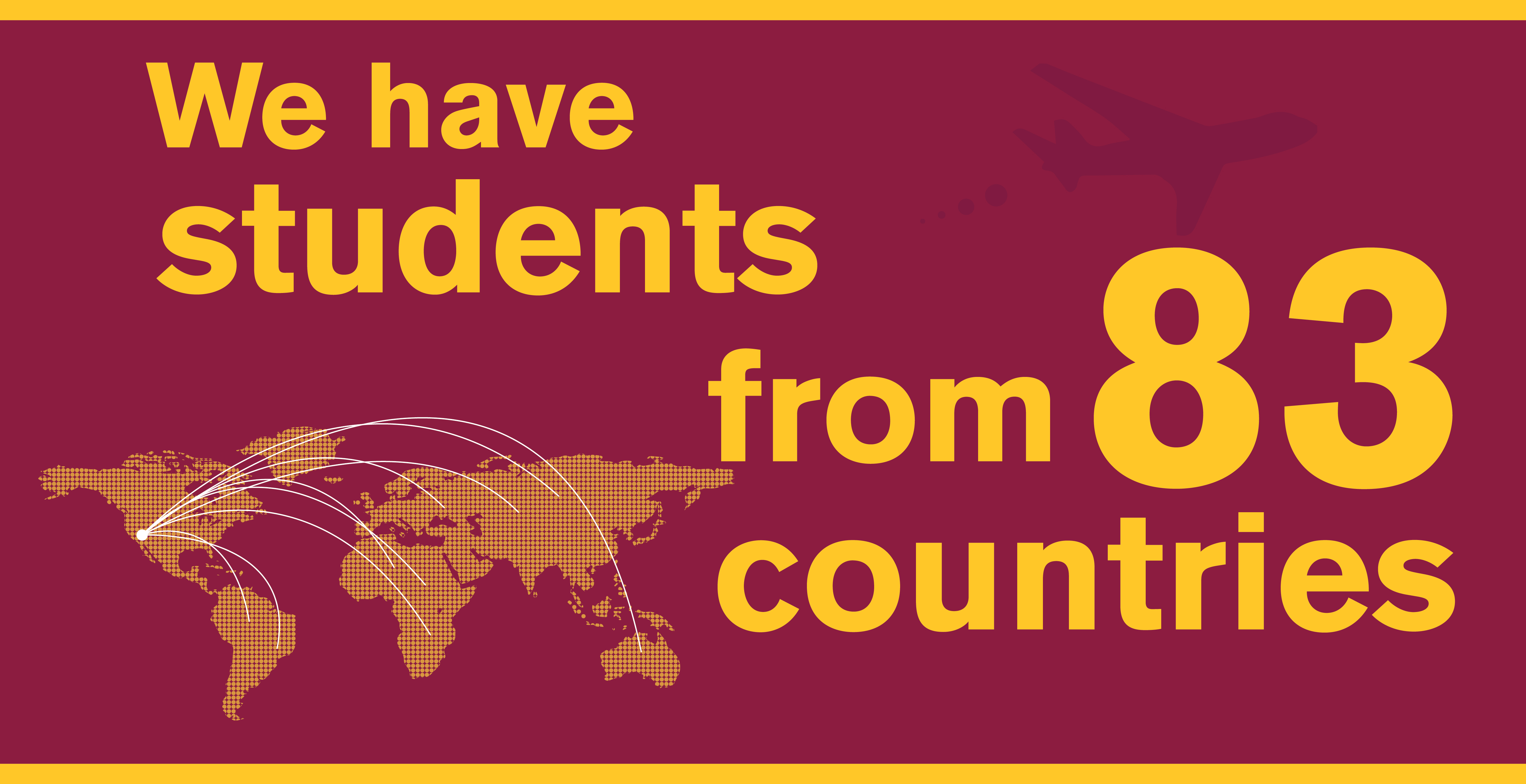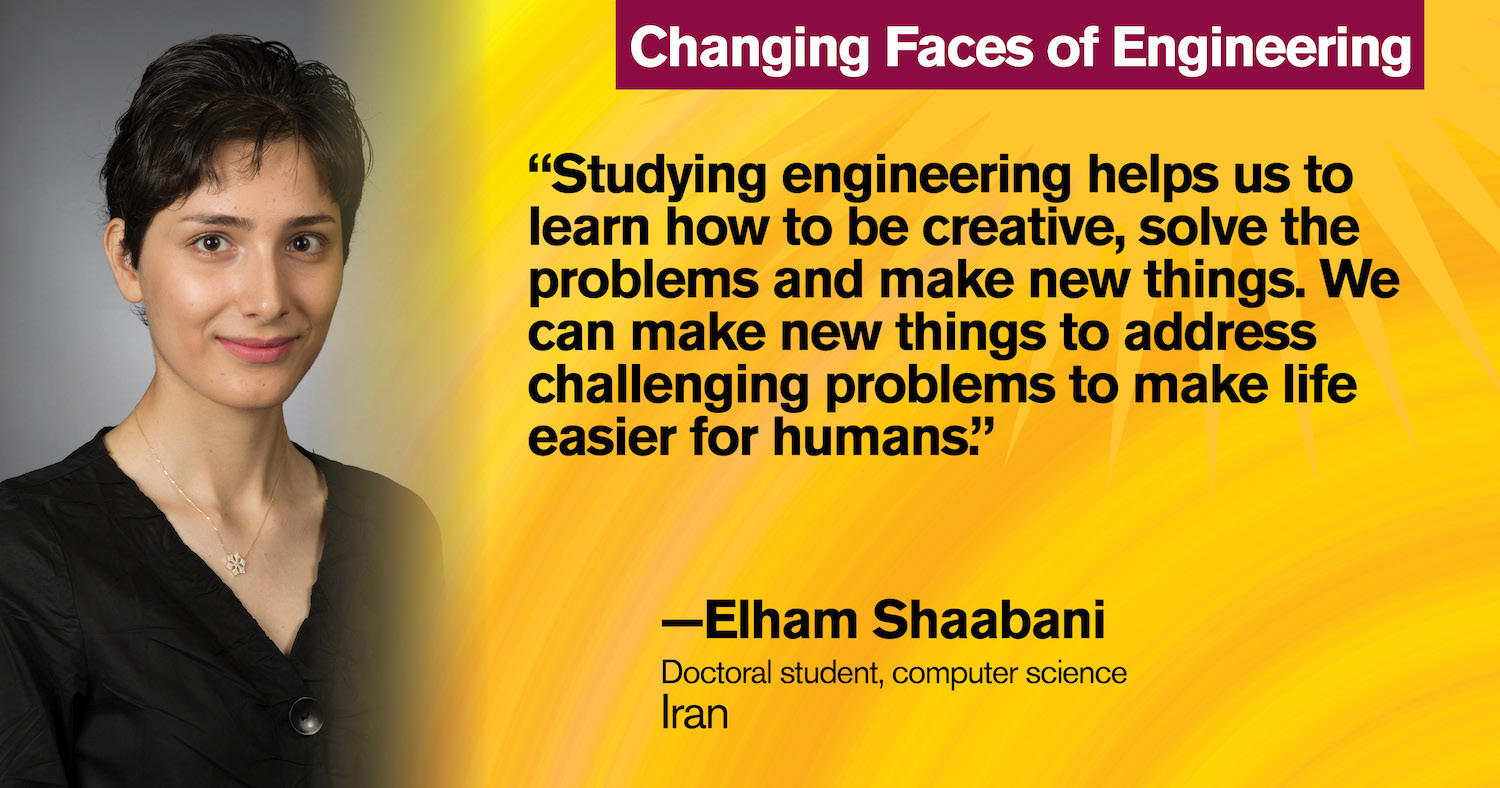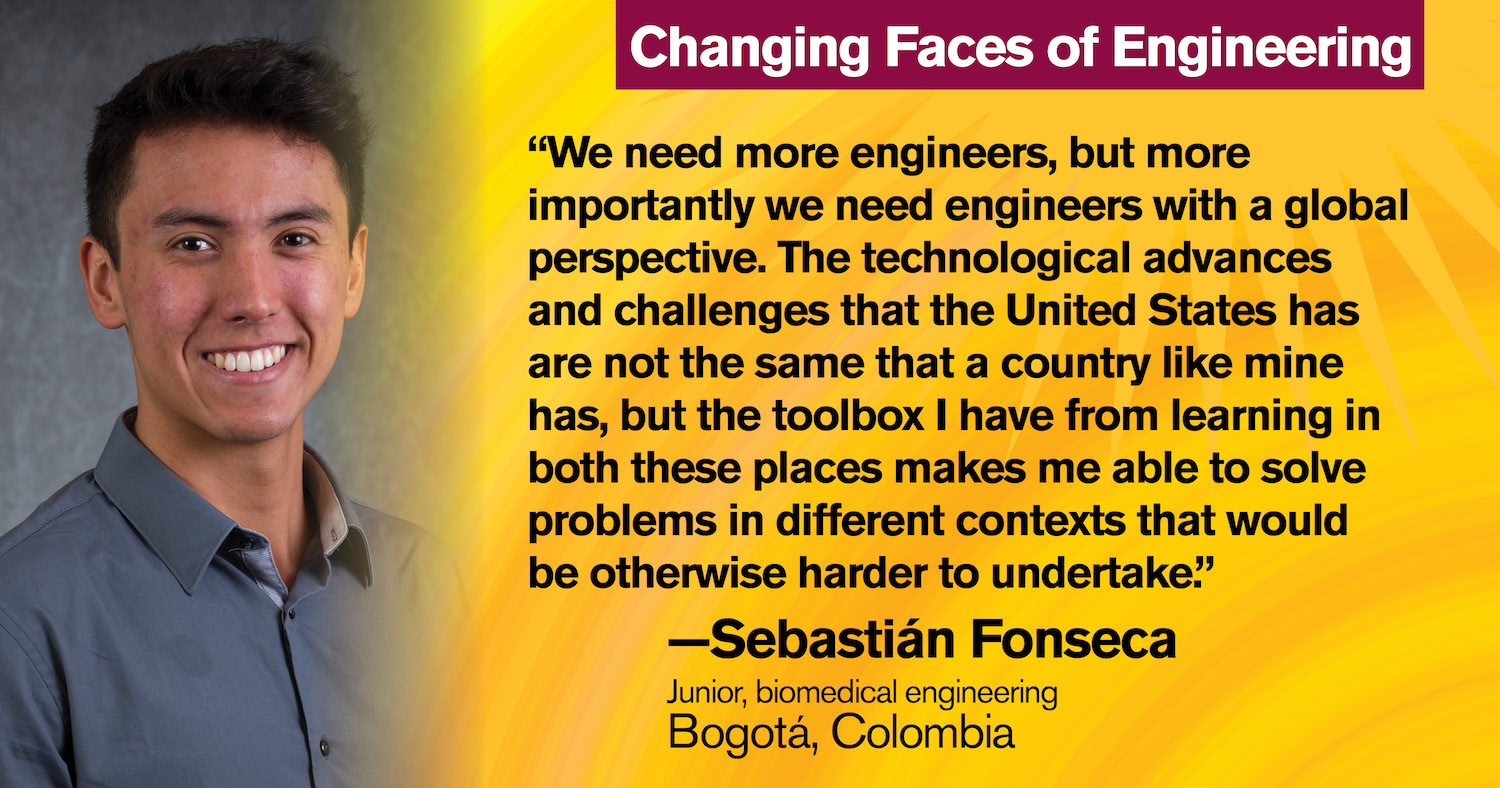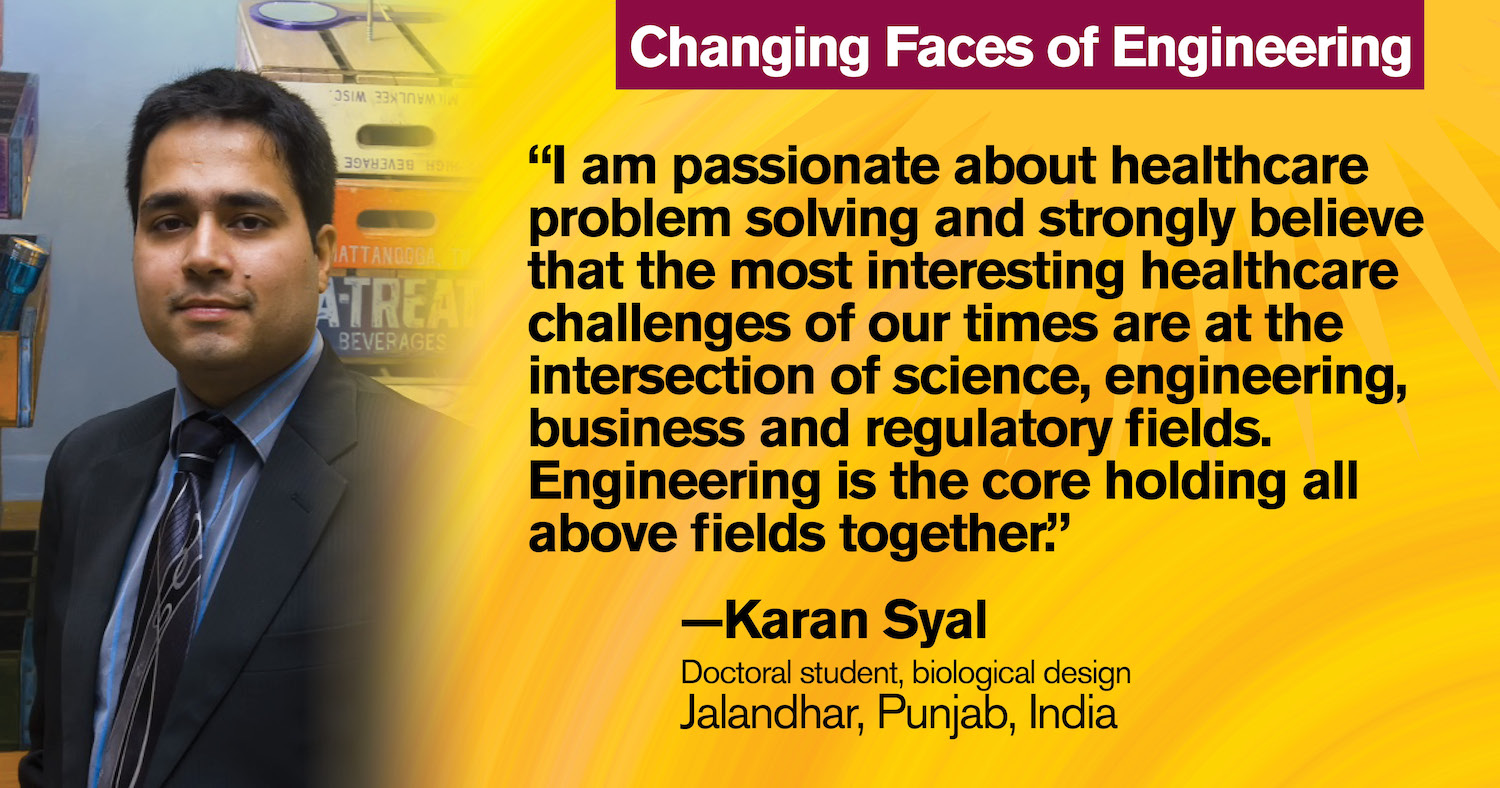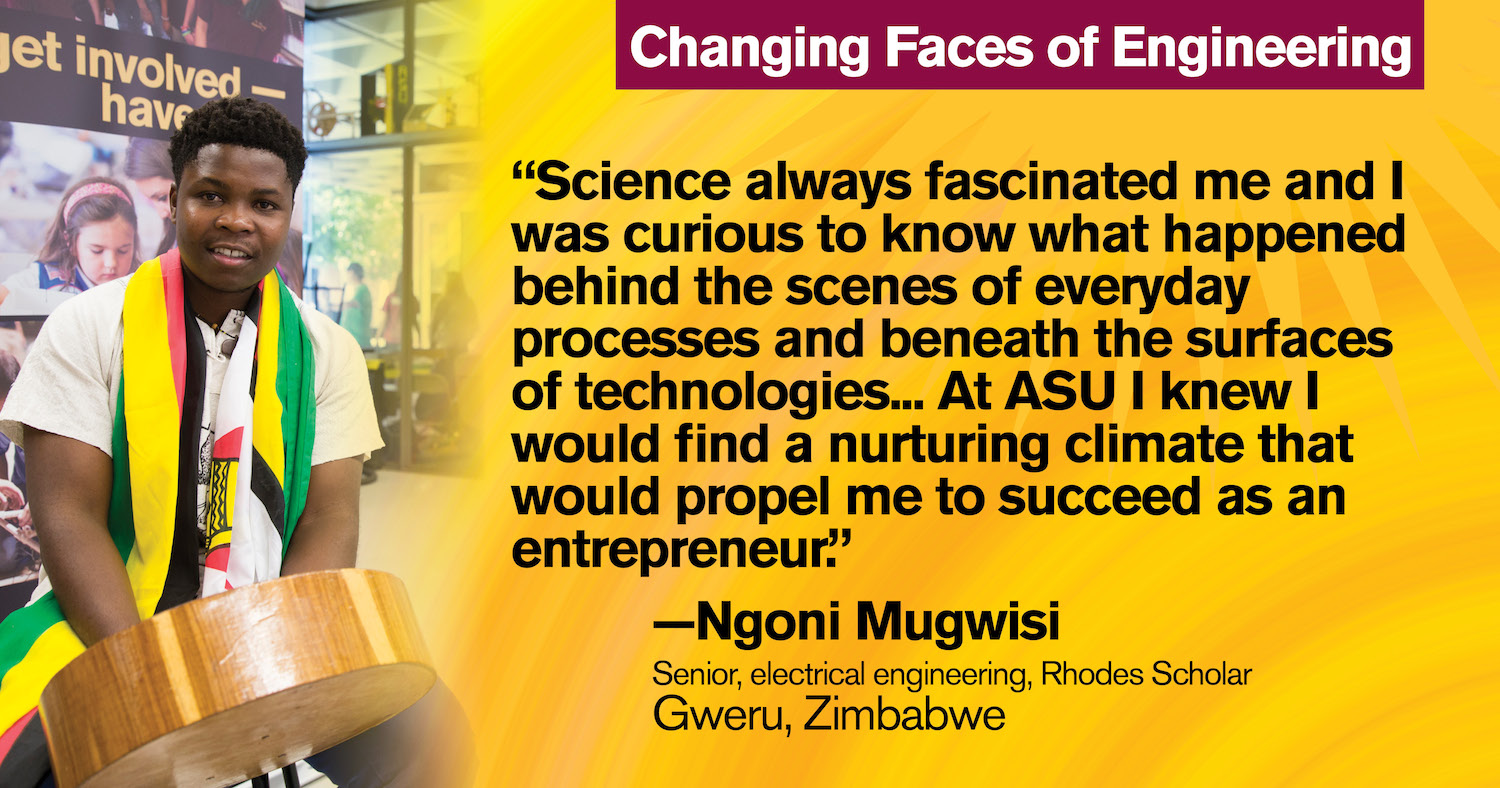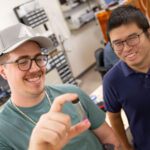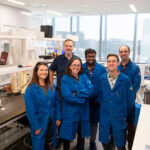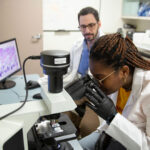
The Changing Face of Engineering | International Students
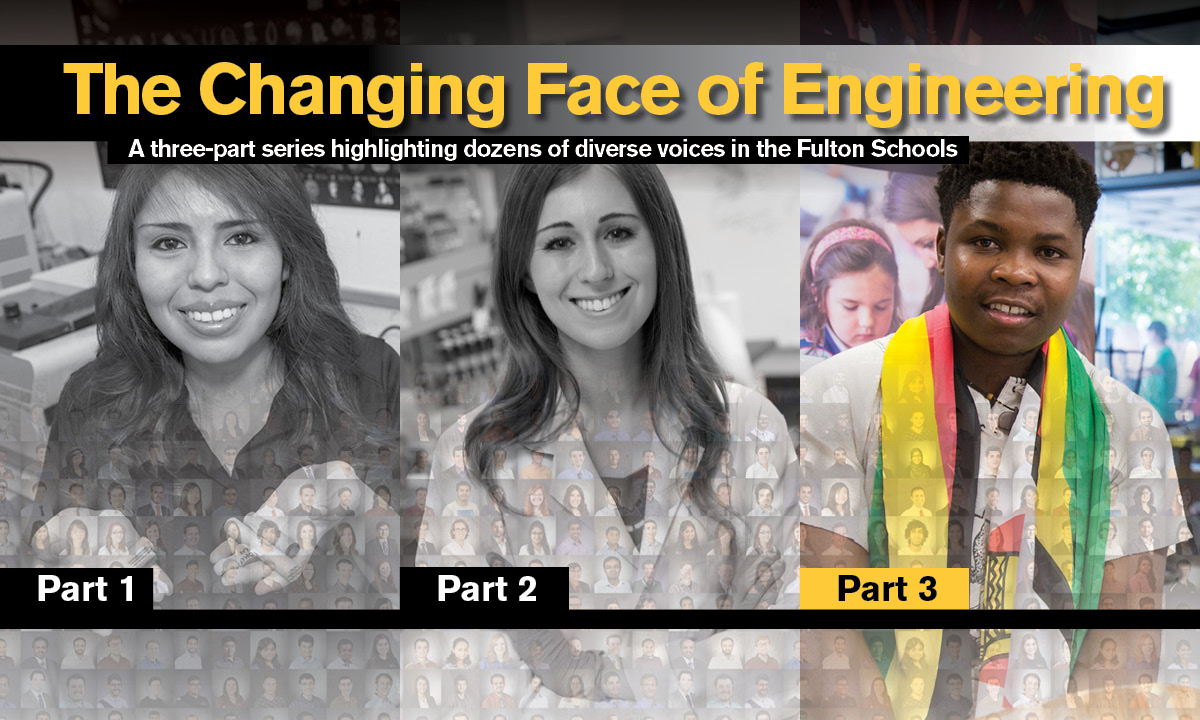
This is part three of a three-part series. Access the introduction and additional sections
Global voices for global issues
The Ira A. Fulton Schools of Engineering are a place where people come together from around the globe to work and prepare themselves to move the world forward in innovation and tackle pressing global issues. In order to take on global issues, you need to have global voices in the conversation to fully understand the challenges we face.
At the Fulton Schools, our global community is represented by students from 83 different countries, bringing different points of view, experiences and ideas to the table. Arizona State University as a whole was recently named the No. 1 public university in the United States for hosting international students and is now ranked No. 3 overall by the Institute of International Education. ASU has 12,750 international students with 4,367 of those in the Fulton Schools.
“The United States has some of the finest universities that offer a range of engineering programs,” says Tirupalavanam Ganesh, Fulton Schools Assistant Dean of Engineering Education. “Studying engineering at the Ira A. Fulton Schools of Engineering gives students access to some of the best minds in many different disciplines who are engaged in cutting edge research. There are diverse groups of faculty engaged in research that can have significant impact on the world. By working with faculty and researchers in the United States, international students can not only gain a broader perspective, they can also contribute their ideas to the research and development occurring here.”
The ASU Charter states in part that our university is “…measured not by whom we exclude, but rather by whom we include and how they succeed…” This highlights that every individual can equally be part of the ASU culture and benefit from the resources, groups and centers that are offered to all. ASU has made an effort to bolster the number of students globally engaged. Global engagement is seen as a way for students to gain the personal, academic and professional benefits that come with interacting with people from different cultures and with different views.
The ASU International Scholars and Student Center provides international student support and facilitates the success of international students and scholars during their stay in the U.S. The Center provides advisement on a variety of concerns such as visas and job placement. Additionally, the Center facilitates the integration of students from other countries into life at an American university and helps with cultural adjustment. ASU’s Global Launch provides English language training and academic preparation services designed to help students succeed in their new academic environment, and the Coalition of International Students unites university cultural groups and helps to promote increased understanding among cultures.
Through their eyes
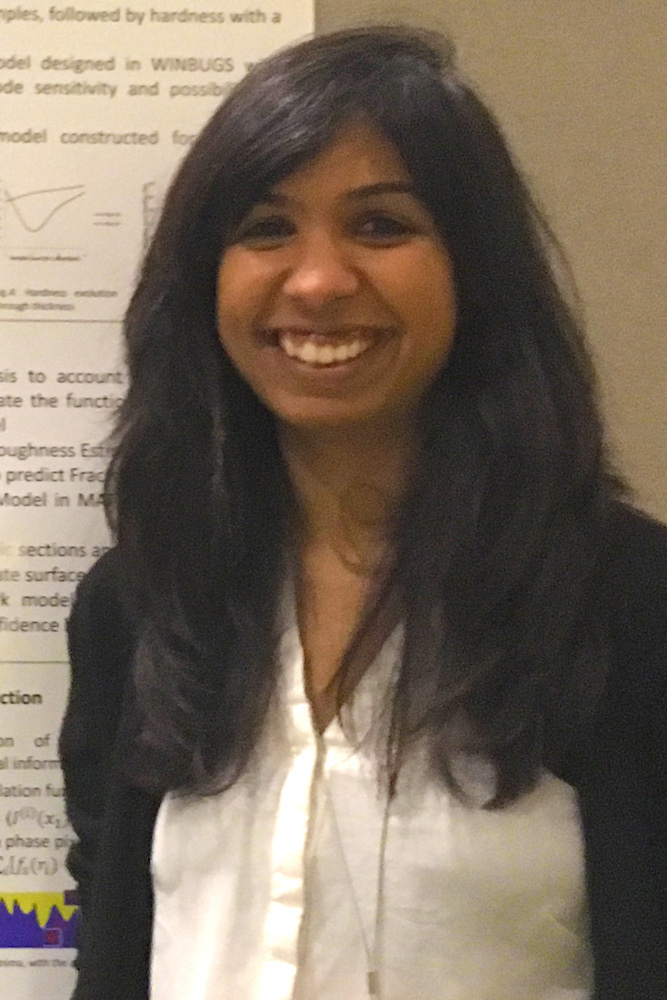
Sonam Dahire
Doctoral student, materials science and engineering
Sonam Dahire has been interested in science ever since middle school when she would conduct laboratory experiments. The challenge and intrigue she found led her to pursue an education in engineering.
“I think of engineering as a field that has continuous growth opportunities, and more importantly, as one way to be able to give back to the society and make the world a better place, and therefore, this career choice is the one that I made,” Dahire says.
Moreover, Dahire believes that scientific research of all kinds makes the world a better place, especially by addressing technological challenges. She advocates a global, collaborative approach to research as well.
“As some technologies may be more progressed in one country than another, therefore engineering students from different places around the world can share the knowledge and help each other to grow,” she says.
Dahire came to the Fulton Schools to pursue a master’s degree in materials science after two years of working for Michelin in the U.S., Canada and India. Prior to that she earned her bachelor’s degree from the National Institute of Technology, Tiruchirappalli in her native India.
She chose to come to ASU because of the Fulton Schools’ reputation and emphasis on interdisciplinary scholarship.
“A set of core courses in combination with the flexibility to choose related courses from other fields allows the development of a firm background in the field, as well as provides the opportunity to learn about specific topics as per the individual’s interest or project requirements,” she says.
Dahire was also drawn to ASU’s large international student population, which ties into her approach to research.
“Also, ASU accepts a large group of international students which not only creates a diverse atmosphere for academic research with the exchange of technologies and research skills, but also teaches us to move forward together in a unified manner which is a vital component to ensure the prosperity of the world together,” she says.
Being on the other side of the world from her home in India, she does miss being close to her family and old friends, but she has found her place at ASU.
“I have been very lucky to have a great mentor as my advisor and some good friends, and that makes me feel at home even after being so far away from my actual hometown,” says Dahire.
Dahire says that her journey as an international student has been wonderful, highlighting ASU’s role as “an equal opportunity institute.”
“Every individual can equally benefit from internship programs such as the Engineering Internship Program and the various career fairs which reflects the wellness of ASU’s work culture and provides a good platform to help the students have learning opportunities from internships and jobs and to build a successful career,” she notes. “It is no less than a miracle to have accessibility to the excellent research facilities here at ASU. Also, the constant support and guidance from the faculty and peers adds to the hospitable learning environment.”
Dahire has thrived in the Fulton Schools environment, receiving an award for Best Doctoral Symposium Presentation at the 2016 Prognostics and Health Management conference in Denver.
Having already lived in India, the U.S. and Canada, Dahire isn’t particular about her next destination after graduation. She is looking to go wherever her career next takes her, where she can continue spreading her global voice.
“I feel much honored to be a part of the engineering programs at one of the most renowned institutes in the country,” Dahire says of the Fulton Schools. “Above all, the most important part is the exchange of ideas and knowledge with fellow researchers, or anyone else seeking guidance, and thus promoting the growth of the overall engineering field.”
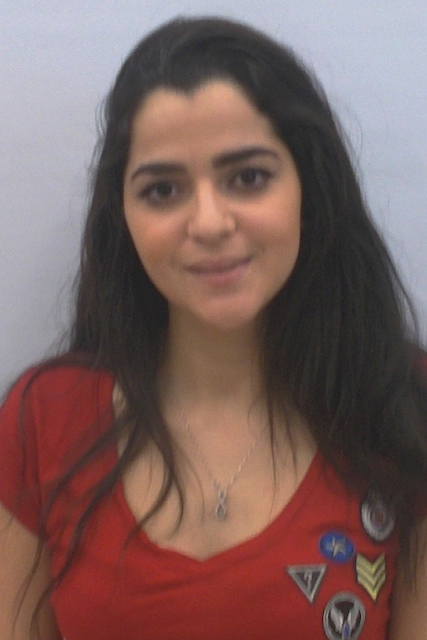
Imane Lamrani
Doctoral student, computer engineering
Imane Lamrani arrived at ASU two years ago after earning bachelor’s and master’s degrees in electronic telecommunications, computer science and intelligent systems at universities in her home country of Morocco, and then a master’s degree in computer systems and software design from Jacksonville State University in Alabama.
“I had the opportunity to do doctoral studies in France,” she recalls. “If you think about it, some would say it’s the best choice as it is closer to my home country, the language spoken is my second language, and I hold a bachelor’s degree from a French-system university in Morocco.”
Lamrani’s decision to attend the Fulton Schools rather than a school closer to her home was ultimately based on the reputation of ASU’s innovation in education.
“Studying engineering as an international student is very important because ASU does not concentrate on only providing coursework to students,” Lamrani says. “They also make students tackle real-world engineering problems while working on their degrees. ASU offers many opportunities that students could be part of where they have the opportunity to apply what they’ve learned in courses to solve real-world engineering problems. From my experience, the French/Moroccan educational system is missing this point.”
Lamrani’s long-term goal is to help implement the American educational system in Morocco. She believes it would be very beneficial and aid in realizing the dream of many Moroccan students who wish for an American education.
Lamrani did end up studying in France for a week this summer as one of only 10 American computer science and computer engineering doctoral students chosen for a session of the French-American Doctoral Exchange Program organized by the Office for Science and Technology of the French Embassy in the United States.
Her decision to pursue a career in engineering was based in part to make sure her voice was included.
“Engineering is a male-dominated field, so having more women in this field helps emphasize the fact that women and men have equal capabilities,” Lamrani says. “I believe that diverse perspectives are critical for solving the grand challenges facing society. If we are looking for more innovation, then a diverse population of engineers is required. Diversity includes gender, culture, personality, aspiration, beliefs… It has been proved that diversity in a group leads to better outcomes.”
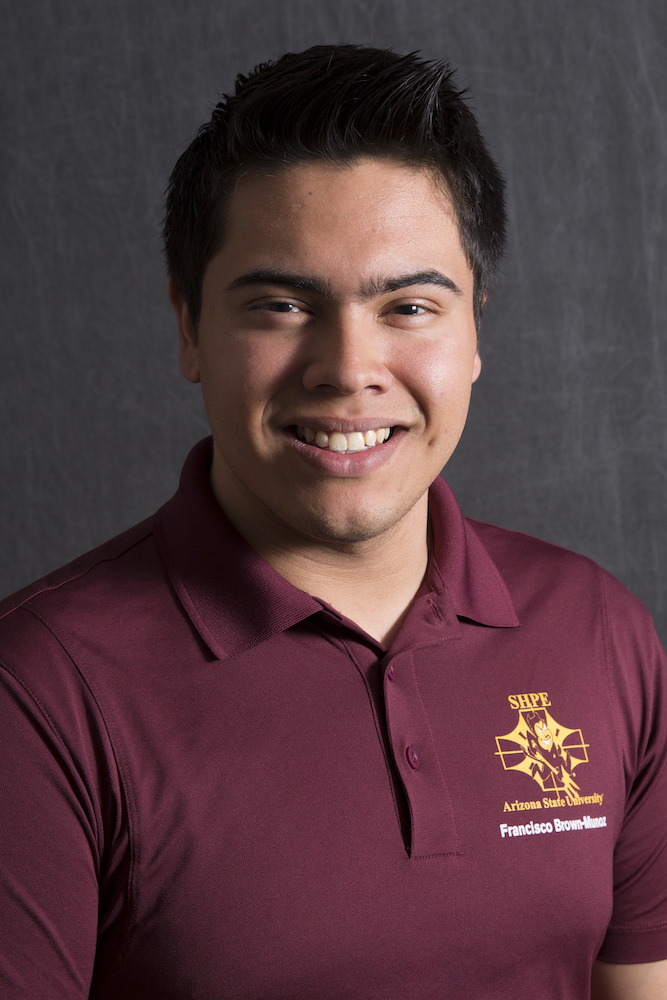
Francisco Brown-Muñoz
Senior, chemical engineering
Francisco Brown-Muñoz always had an interest for science and engineering dating back to his childhood, but the exact field he wanted to study was up in the air. He developed an interest in civil engineering and construction from playing Sim City and was later fascinated by biotechnology in high school. At home, he learned the basics of chemistry from his parents, who both hold doctoral degrees in materials science.
“This complicated my career choice, yet after a long decision-making process between studying the fields of biotechnology and sustainability, I decided to pursue a degree in civil engineering with a focus on sustainability,” Brown-Muñoz says.
Eventually, he discovered he had a keen interest in chemistry and transport phenomena, as well.
“So I decided to switch to chemical engineering and work at the Swette Center for Environmental Biotechnology, which effectively merged the fields about which I was passionate: biotechnology and sustainability,” he says.
He was motivated to study in the U.S. due to the lack of a sustainability-focused civil engineering degree offered in Mexico.
“I was honored to receive a scholarship that would cover most of the costs of my education in Arizona,” says Brown-Muñoz. “So among NAU, UA and ASU, I decided to go to the school with the best engineering college of all three.”
Brown-Muñoz was selected as one of three Swette Undergraduate Sustainability Interns for the 2015-2016 school year. In the Swette Center, he worked with César Torres, assistant professor of chemical engineering, to produce electricity using microbial electrochemical cells.
He believes that engineering is important for people all around the world to study.
“As I have come to learn during my involvement in the outreach program of the Society of Hispanic Professional Engineers, engineering is a field in which anyone can attain their full potential and empower their community to make this world a better place to live,” Brown-Muñoz says. “But if we have to highlight the importance for international students, I would say that it is the best way to represent their country and the capacities, abilities and creativity of its people, and how these can contribute to make our world a better place for future generations.”
“I have had a good experience at ASU,” says Brown-Muñoz. “I have been able to learn and develop many skills both inside and outside the classroom that I would never be able to obtain elsewhere. My involvement in SHPE, in research and in the Ira A. Fulton Schools of Engineering have truly enhanced my academic and extracurricular achievements.”
He’s yet to determine his long-term plans, but for now he is enrolled in the Fulton Schools’ 4+1 program in chemical engineering. He is seriously considering pursuing a doctoral degree in environmental engineering focused on wastewater treatment.
“I aim to become a consultant that deals with wastewater treatment and water resources engineering,” Brown-Muñoz says. “Coming from a drought-stricken part of Mexico, I hope to give back to my community in terms of this vital resource that we have all lacked at some point or another.”


